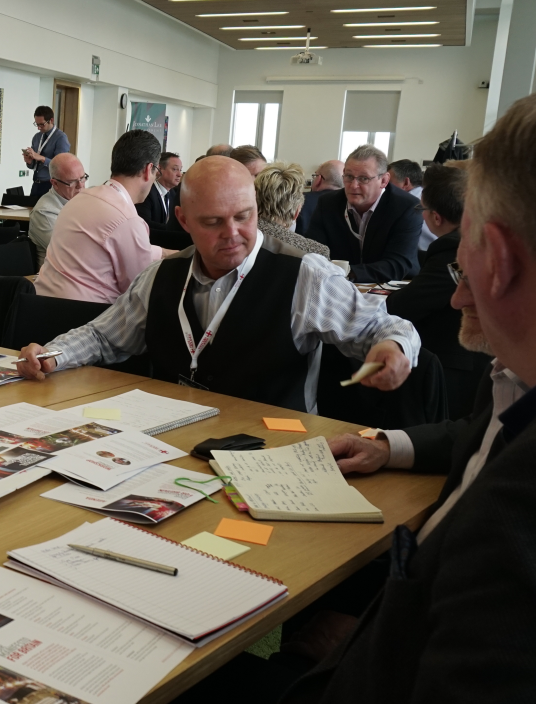Overcoming the skills gap

Overcoming the skills gap is one of the biggest hurdles facing the manufacturing industry today but we believe these challenges should be met and conquered – and who better to do it than our members as they are the ones directly impacted by the situation.
This is why we have set up one of our new Advisory Boards with a specific focus on skills and tasked the members with identifying best practice in order to show the remainder of the network how these hurdles can be overcome.
While there is an inevitable focus on apprenticeships and training the next generation of workers to sustain the manufacturing sector in the years ahead, there is much more to the board’s brief.
In particular, to look beyond the factory floor and into the boardroom, where many of the big decisions are made.
These decisions can have a major bearing on the future direction of a business and influence crucial strategies such as where and when to invest or move into a new export market.
Many directors are unprepared for such weighty decisions, which is why the board is in place.
We believe the most successful businesses are often the ones most open to suggestion. So, our members have a wealth of knowledge here and sharing best practice will help to steer many businesses on the right course.
By having recourse to members who have undergone the same process down the years, the knowledge sharing process will help firms to avoid easily remedied scenarios.
In this way, our aim is to help all members achieve long-term and sustainable growth.
The Advisory Board has therefore adopted this dual focus – one for addressing Apprenticeships and the other for looking at potential fissures in the boardroom.
Apprentices
Apprenticeships are the traditional means employed by manufacturers to develop their next generation workforces.
But there are many questions to be answered.
Such as, is the traditional approach still the best or should other options towards training be explored?
Is the industry doing enough to encourage and nurture young talent? Do we have to try and encourage youngsters at an earlier age – should we be trying to engage children at primary school level?
Are schools doing enough to encourage young people to see manufacturing as a viable career?
Should manufacturers be aligning themselves more closely to schools and colleges in the hope they can attract their brightest talent into industry?
Is the Apprenticeship Levy a help or a hindrance?
These are all questions which are being posed to our board members so they can shape a unified skills policy.
Ultimately this won’t just be for the benefit of Made In members. It is our goal that these findings help to shape policy at the highest level because only by getting these issues discussed at the highest level can we hope to affect meaningful change.